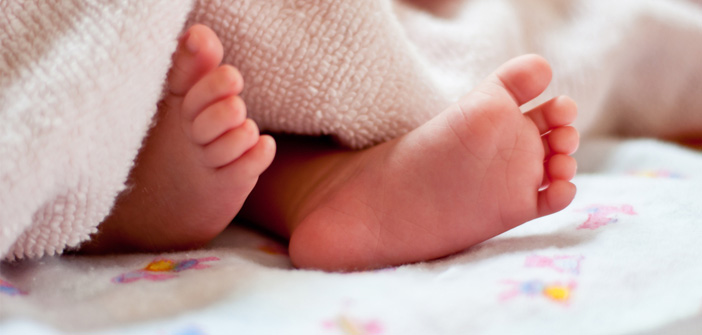
C-Section babies have different gut bacteria; study
 New research finds that babies born by caesarean section have different gut bacteria to those born vaginally. The most comprehensive study to date on the baby microbiome showed that babies born vaginally pick up most of their initial dose of bacteria from their mother, while C-section babies have more bugs linked to hospital environments, including strains that demonstrate antimicrobial resistance. These differences have been suggested to make C-section babies more likely to develop obesity, asthma and eczema.
New research finds that babies born by caesarean section have different gut bacteria to those born vaginally. The most comprehensive study to date on the baby microbiome showed that babies born vaginally pick up most of their initial dose of bacteria from their mother, while C-section babies have more bugs linked to hospital environments, including strains that demonstrate antimicrobial resistance. These differences have been suggested to make C-section babies more likely to develop obesity, asthma and eczema.
“How your immune system functions through your life might be influenced by its first interactions with bacteria,” said Nigel Field, a senior author of the paper from University College London. He also added that if there are differences in longer-term health outcomes by different patterns of bacteria, that tells us something quite important about health.
Previously it was thought that babies’ microbiomes might be shaped by bacteria that they swallow while in the birth canal. But the latest findings revealed that the microbiome of vaginally delivered newborns did not come from vaginal bacteria but the mother’s gut, presumably picked up at the moment of birth. This observation has led some parents to swab infants born by c-section with vaginal fluids, in an attempt to restore any missing microbes. But the practice of vaginal seeding is controversial.
To understand more about the development of the microbiome, and how the method of birth affected this, researchers studied 1,679 samples of gut bacteria from nearly 600 healthy babies and 175 mothers. Faecal samples were taken from babies aged four, seven or 21 days old, who had been born in UK hospitals by vaginal delivery or cesarean. Some babies were also followed up later, up to age 1. The study found that babies born via cesarean had more bacteria that are typically acquired in hospitals and were more likely to have antimicrobial resistance.
Babies are sterile when they are in the womb, but as soon as they are exposed to the outside world they begin taking in bacteria, which rapidly colonises the gut. By six to nine months, the differences between the two groups had levelled out. But the scientists think that the initial exposure to bacteria at the moment of birth could be a “thermostat” moment for the immune system, defining its sensitivity and which strains of bacteria trigger a response. They are yet to uncover the exact mechanisms by which early exposure influences immune activity, and this needs to be worked out before the findings have any real implications for clinical practice.
Peter Brocklehurst, a professor of women’s health at the University of Birmingham and a co-author said that it would not be advisable for parents try to give caesarean-born babies a dose of maternal gut bacteria, for instance, which could be dangerous.
The study also suggested that antibiotics, which are normally given before a caesarean, play a role in shaping the baby microbiome and breastfeeding also had an impact on gut bacteria. The team wants to expand the study to include larger numbers of babies, including those born at home. They also want to look in more detail at how long hospital bugs with antimicrobial resistance persist, and whether this poses any risk to babies born through caesarean. The study, published in ‘Nature’, took seven years to complete.
Source: The Guardian, CNN, Nature, Newscientist.